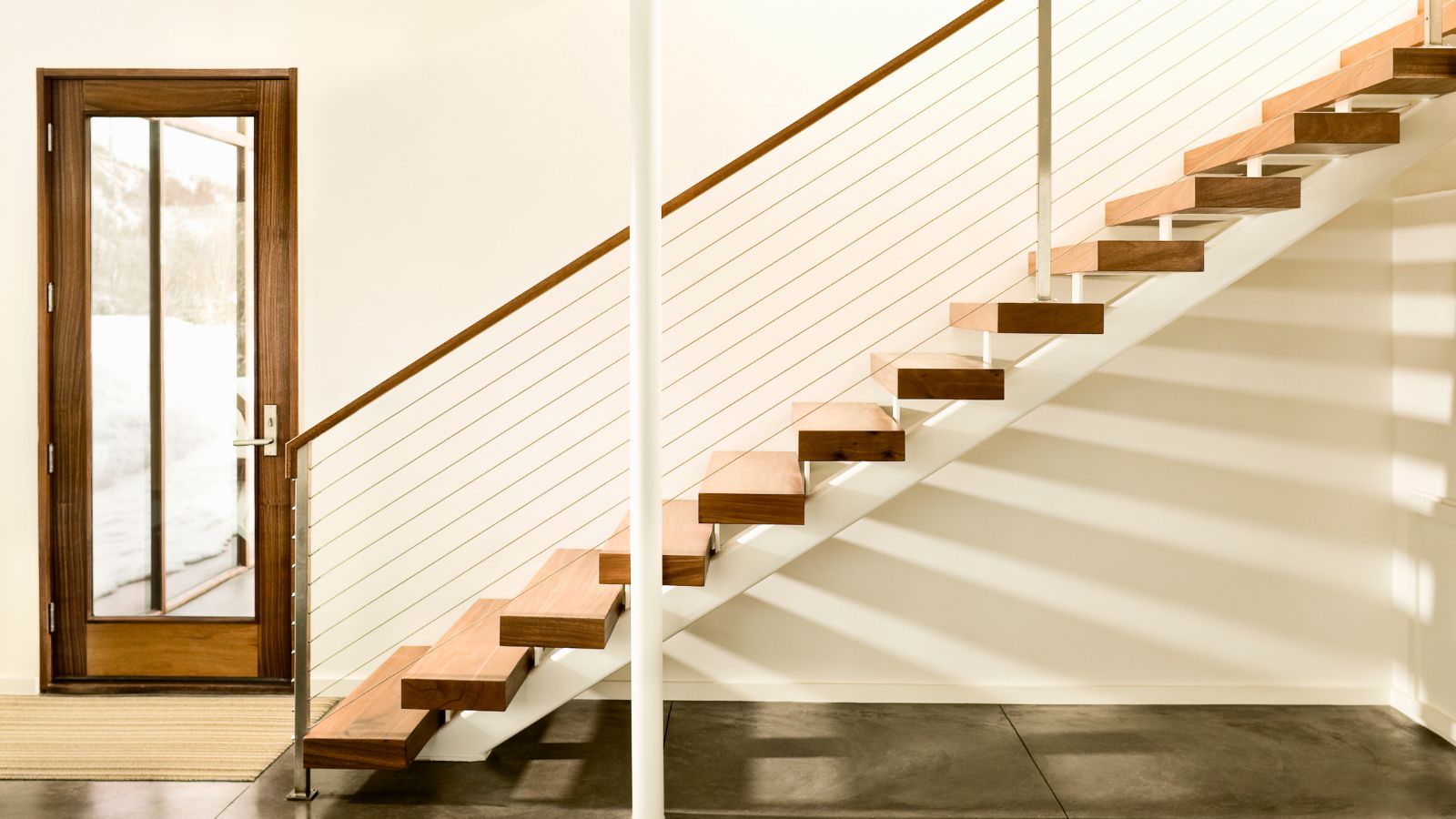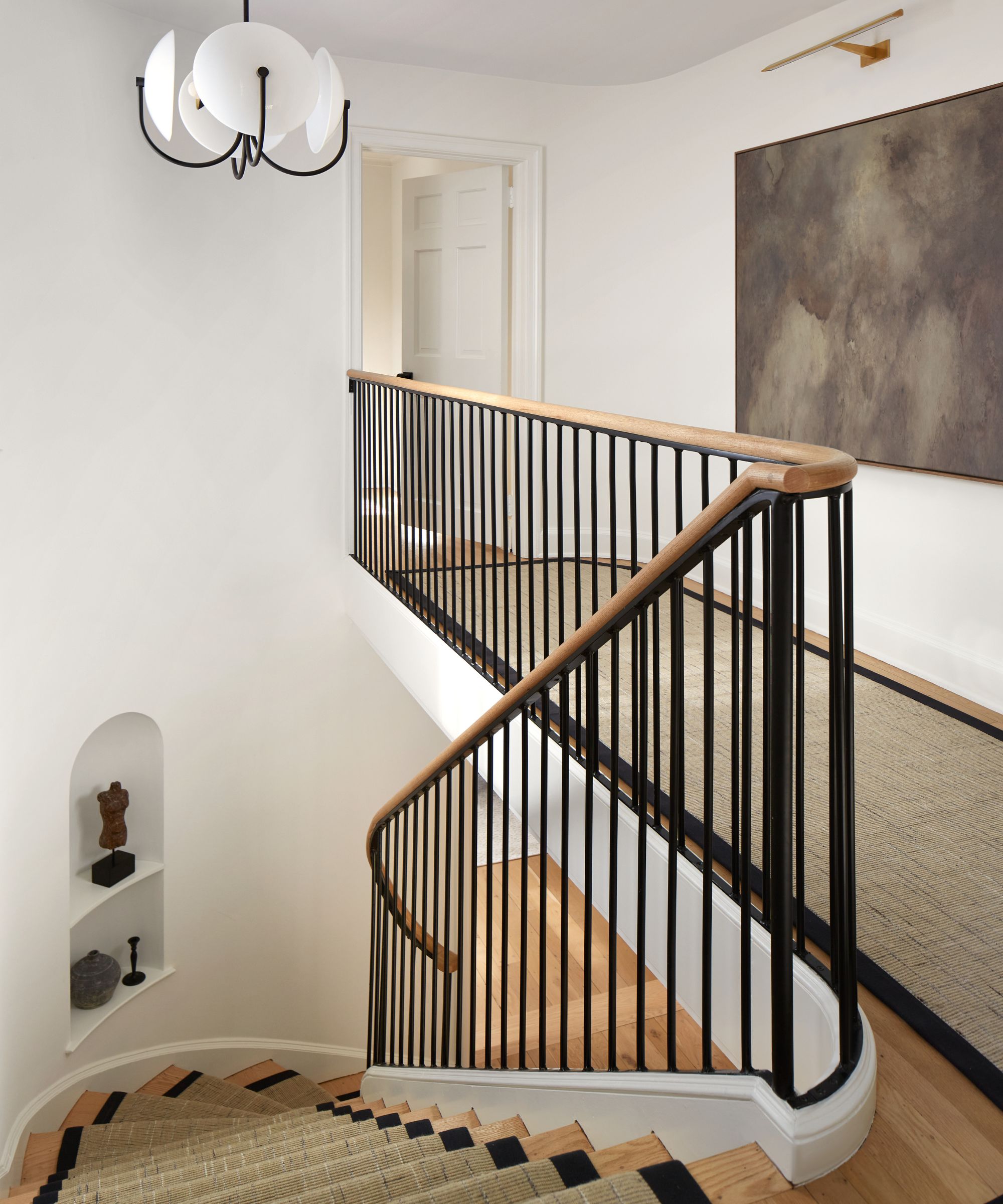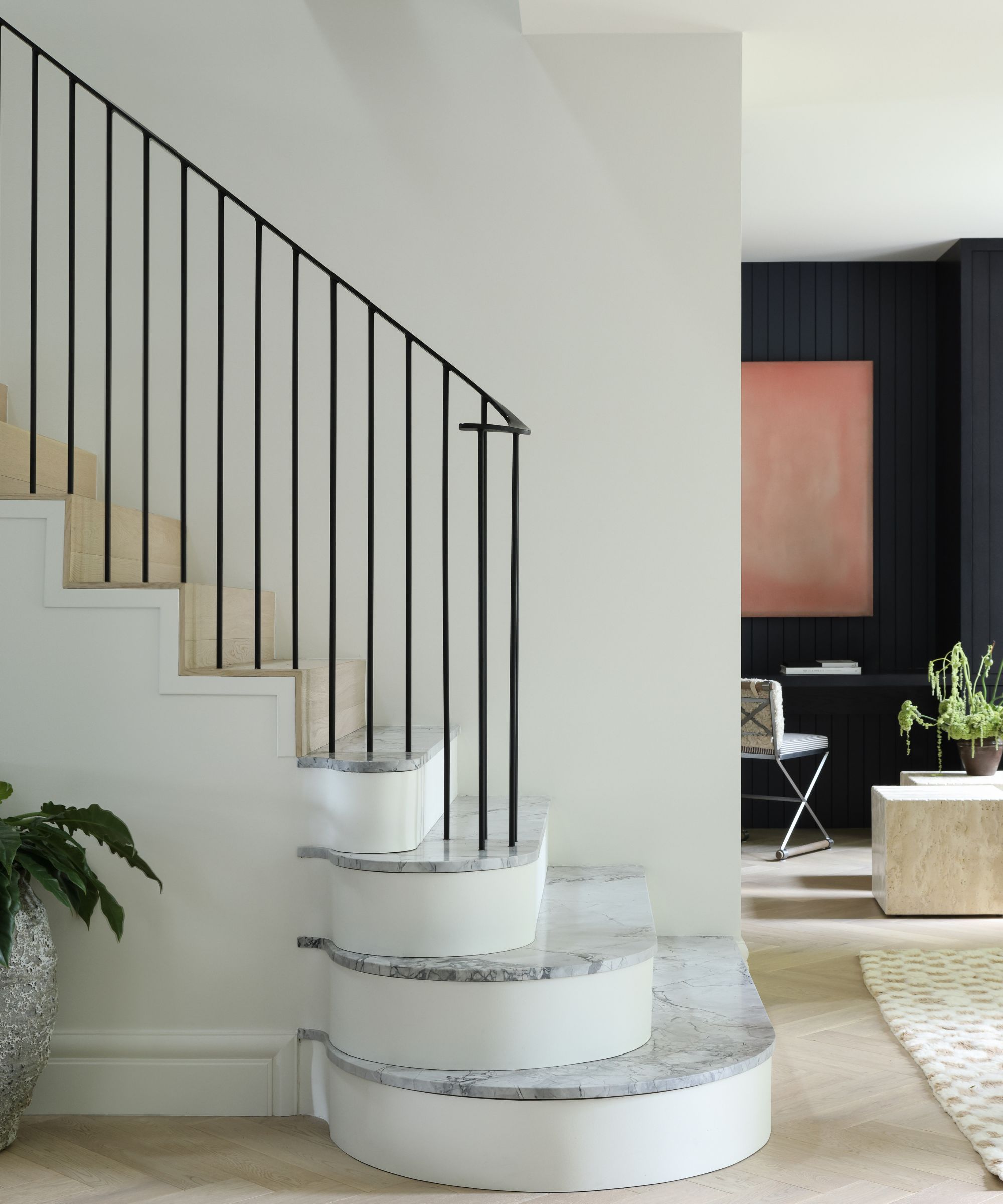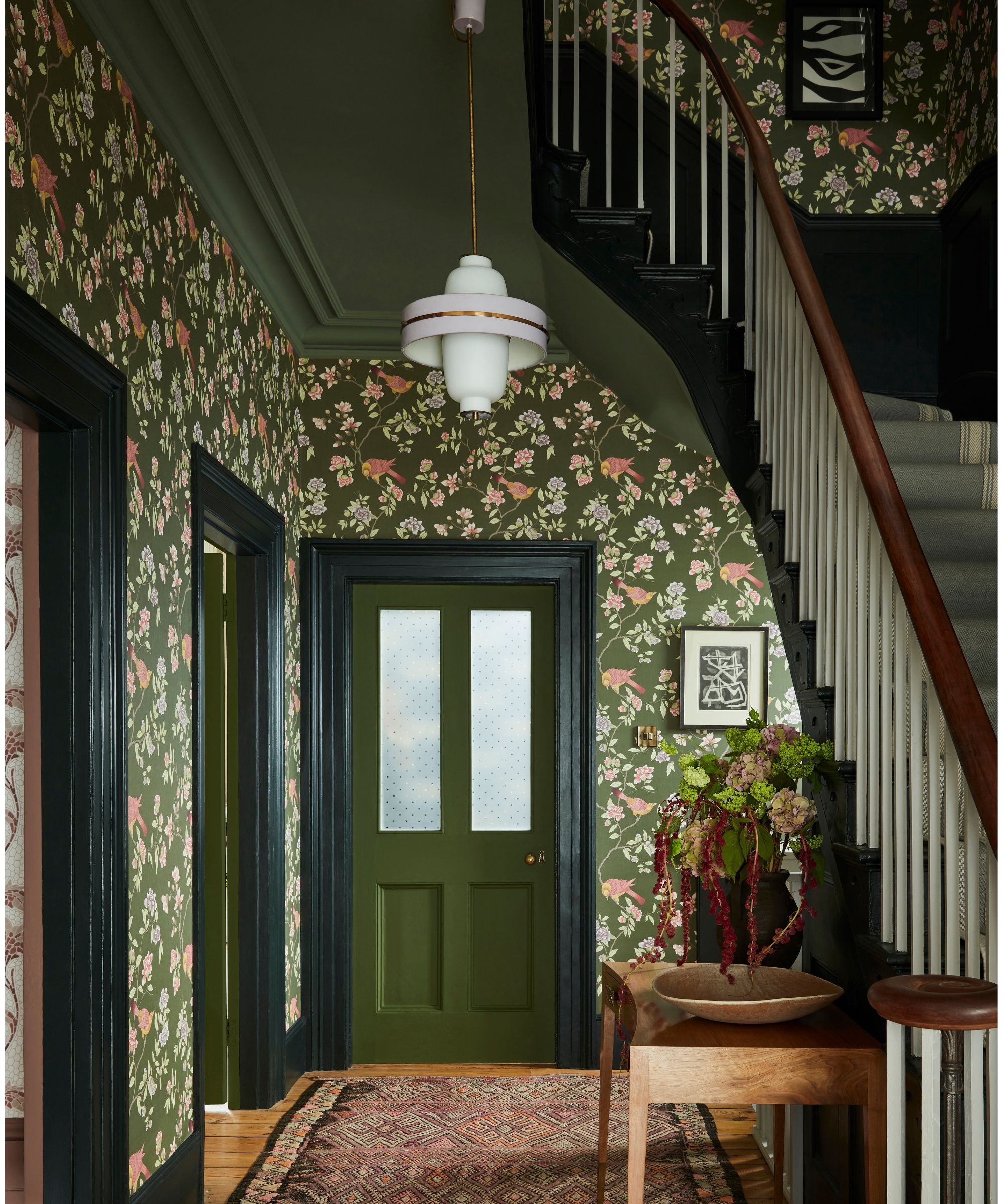
There are few things as infuriating as a lightbulb above the stairs breaking – especially when your staircase is on the darker side already. It is not as if you can quickly hop up on a stool to switch it out, but you need it to avoid falling when moving around at night.
While it is sometimes tempting to leave it be for as long as you can manage, or worse, try to swap it out quickly while performing a death-defying balancing act, safety is essential.
We asked professional handymen for their tips on how to change a lightbulb above the stairs quickly and safely so that you don’t have to moonlight as an acrobat.
How to change a lightbulb above the stairs
When planning out your staircase ideas, it helps to consider how you will light it and how you will repair your lighting ideas as and when required. The last thing you want to do is balance a ladder on a step and take a fall.
However, if you are stuck with a hovering bulb high up on your ceiling, not all hope is lost.
1. Use the right equipment

Ultimately, you want to avoid working at heights wherever you can. You will be safest whenever you can keep your feet on the floor, begins Josh Rudin, professional contractor and owner at ASAP Restoration.
‘I recommend using a lightbulb-changing extension tool, available at Walmart,’ he says. ‘They’re affordable, and you don’t need to pile all your furniture into a dangerous pyramid to reach the bulbs this way. Most hardware shops or your local big box store will have a variety to choose from in case you have multiple different kinds of bulbs to swap out beyond arm's reach.’
It is still okay to use a ladder if that is all you have, however, you need to take safety precautions to avoid falling, continues Nick Chatzigeorgakis, remodeling expert and owner of Intrabuild:
‘I recommend using an extension ladder with a standoff, designed to bridge gaps and provide a stable, secure platform,’ he says. ‘It's critical to ensure the ladder's footing is secure, particularly on stairs where balance is inherently compromised. Using rubber mats or anti-slip pads under the ladder's feet can prevent slipping, which is a common issue we've addressed in our renovation projects. This setup not only guarantees stability but also protects the staircase materials from any potential damage. ‘Furthermore, once the ladder is positioned, always engage all the locks and double-check them. It is also a good idea to work with someone else who can ensure the ladder remains stable and can assist if required.’
2. Turn the power off

Before changing out the lightbulb, make sure that the power is turned off – either at the wall switch or the main breaker, advises Shlomo Cherniak, professional handyman and owner of Cherniak Home Services. The last thing you want is to be electrocuted – especially if you are using a ladder, he says.
If the lightbulb has just blown, it is also advisable that you wait for it to cool down before working on your DIY lighting ideas.
3. Wear the right safety equipment

It might not be glamorous, but it is important to wear the right safety equipment when changing a bulb at heights, too, warns Kristin Hintlian, co-owner of Bonsai Builders:
‘For extra safety, I always advise wearing shoes with a strong grip and using hands-free accessories like a small tool belt or pockets to hold the new bulb. This minimizes the risk as you won’t need to climb down frequently.’
It can also be helpful to wear safety glasses if the bulb has shattered, to avoid any broken glass falling into your eye as you look up, adds Shlomo Cherniak, professional handyman. Gloves are also recommended in this instance to avoid deep cuts.
4. Pick energy-efficient replacements

When replacing your lightbulbs, it is a good idea to pick energy-efficient, modern replacements that are more likely to last. This both cuts energy bills and reduces how often you will have to swap it out in the future.
Smart lighting is a good option here, as you can change the lighting temperature as required, or set it to come on automatically whenever you use the stairs, suggests Gabriella Dyson, Head of Solved at Homes & Gardens.
If you want to avoid the inconvenience of working at heights, there are several other ways to light up stairs that can be both more practical and pretty. Adding floor-level lighting on each step, for instance, will illuminate your walkway at a height that is easy to repair if needed. It also has the added benefit of making your staircase more of an architectural feature in your home. It’s a win-win.







